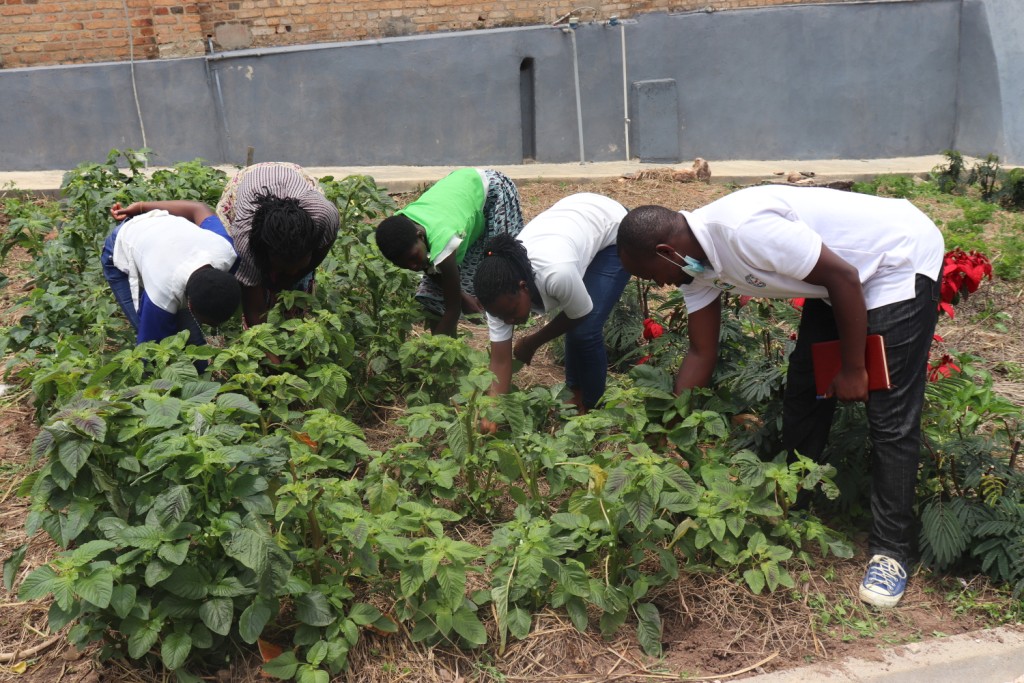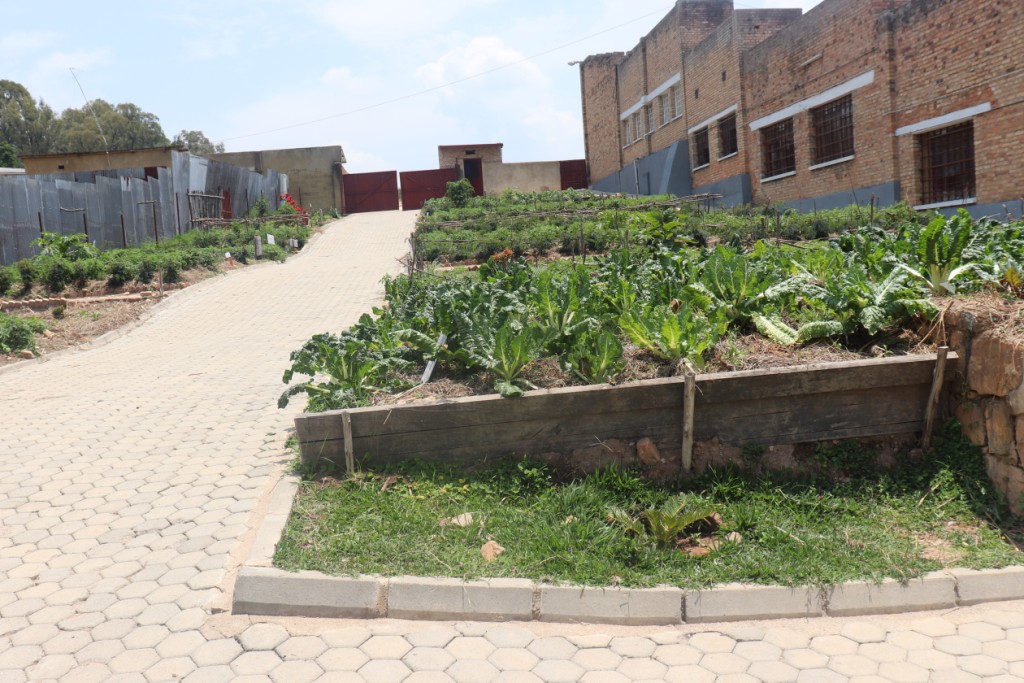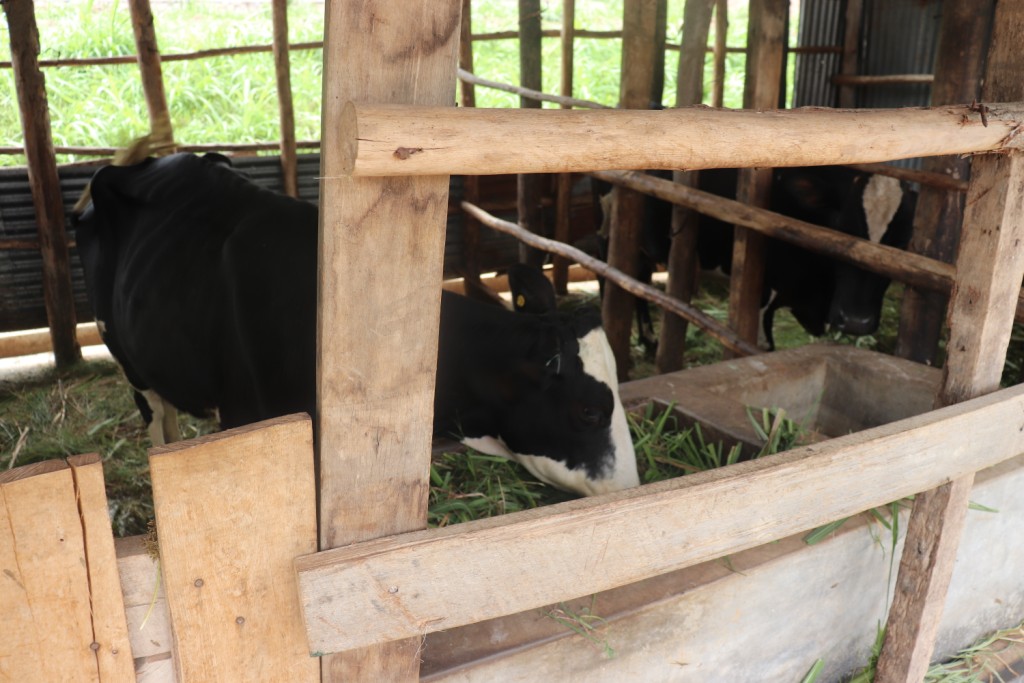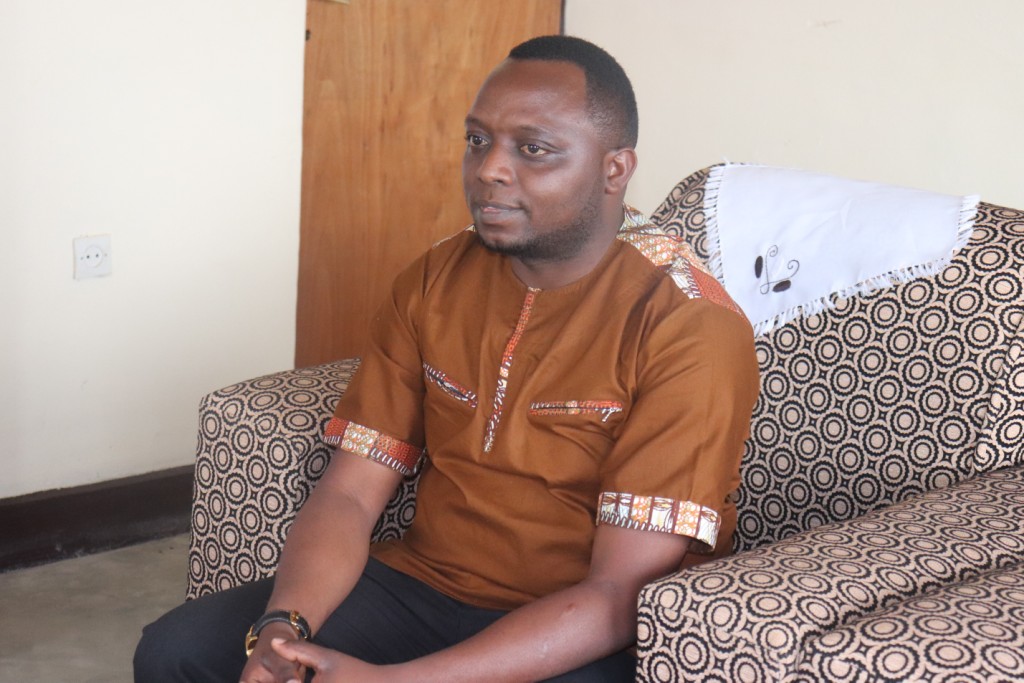
The first Centre for Vocational Training and Agro-ecological Promotion in Rwanda (CEFOPPAK : Centre de Formation Professionnelle et de Promotion Agro-écologique de Kabgayi)
After identifying that the planet is harmed by irresponsibility of human activities that affected the climate and as consequence hinders environment productivity, Caritas Diocese of Kabgayi by the support of (SECODEV: Service de Coopération au Développement) established a Center for Vacational Training and Agro-ecological Promotion as a result of preserving the environment.


Some CEFOPPAK’s agricultural activities Some animal keeping practiced in CEFOPPAK
CEFOPPAK is a center started in Kabgayi around March 2021 with 30 selected students who finished ordinary level but unfortunately didn’t have chance to complete their advanced level. They came from different parishes of Kabgayi Diocese and are living in the center. They are trained within 12 months ends with the internship. It was accredited as a TVET training center. Today used land is 6.5 hectares that will be increased in different parishes’ land like Kanyanza, Ntarabana, Byimana, Kinazi, Nzuki and Mugina.
National Institute of Statistics of Rwanda (NISR) and the National Report of Ministry of Agriculture and Animal Resources, MINAGRI, 2019-2020 illustrated that 64% of Rwandan population lives under agriculture and animal resources. Technically and effectively, this career requires that people, land, air, water, animals and environment in general live without anything boring each other. CEFOPPAK trains people to practice farming activities by using natural resources in order that the future generation may live in the environment unharmed by the current generation .
This center was established so as to contribute to development of agricultural activities and animal resources advancement as the result of having high average of trained people who will invest in agricultural and animal husbandry but friendly with the environment. This will decrease unemployment that affected wide ranges of young age group, and support some vulnerable beneficiaries of Caritas. The exploitation of the land will be essential as to provide food security without global environmental deterioration at the same time as realized in beautiful canticle of Saint Francis of Assisi reminds people that the common home is like a sister with whom people share their life and a beautiful mother who opens her arms to embrace them; also in Pope Francis's call for engaging in the current ecological crisis by making a paradigm shift that will allow all human beings to live sustainably in dignity. “Caring for our common home” (Laudati Si, 2015)
The director of Caritas Diocese of Kabgyi, Father Innocent MUTABAZI insists that this centre will contribute to environmental protection and climate change control. There will be promoted irrigation system so that the sunny season won’t affect the farmers. He reminds youths to have intention about these activities because they provide income: « The earth lives under farming activities in general. The whole world’s population needs food and they will not be satisfied by what produced by elders or even importation from the outside the country but from our home land; Rwanda. People, especially youth have to practice arming activities because it is a business. Young generation may work in this field of agriculture and animal keeping, I am sure they will not regret » he says.

Father Innocent MUTABAZI, the Director of Caritas Diocese of Kabgayi.
As shown by the World Bank report 2020 « Food Smart Country Diagnostic »; In Rwanda specifically, a growing population set to nearly double to 22 million in the next 30 years that will exacerbate the food security challenge. Even today, undernourishment affects 35.6% of Rwanda’s population and 36.9% of children are in diminutive phase. The fact that the elderly generation, the most group where farmers are found, will be diminishing, Catholic Church aspired to find the solution through young generations.
Pamphile BAKUNDUKIZE, the project coordinator in Caritas Diocese of Kabgayi says that this center focuses more on practical approaches than theories in others that beneficiaries apply to work harder than sitting in classes for concepts: “We don’t want students who study without working. If they prefer models, what will they do after finishing in this center? Theories are counted on 40% and practices in farms on 60%. We also favor using modern methods like in irrigation and keeping the harvest to avoid its wastage. This helps to be competitive at the market because clients always buy quality products.” Pamphile says
Furthermore, the agricultural and animals keeping done in this center will also base on working with many institutions to research on harvest modern ways of harvest keeping. As the World Bank report 2020 « Food Smart Country Diagnostic » Across Sub-Saharan Africa, Food Loss and Wastes contributes to food insecurity, reduced income to farmers and communities, and greenhouse gas emissions. Rwanda loses and wastes 40% of total food
production each year because of lacking a modern way of keeping. This will help trainees to be professionals in this field and get more benefits after having this all skills.
In partnership with NESA, students who will finish their trainings in the center will be given certificates related to agriculture and animal resources.
The learners show gratitude to the Caritas Diocese of Kabgayi that thought about them and gave them the opportunities to become self-reliant for tomorrow. They had new approaches about agriculture, animal keeping and production, fishes keeping in coming days and other related activities.

Leave your Comments